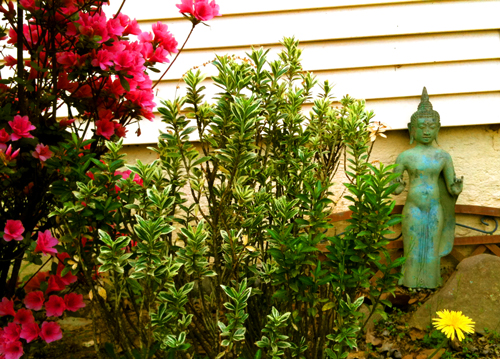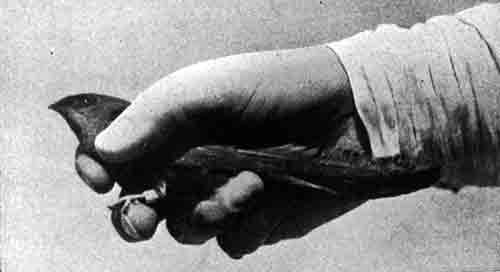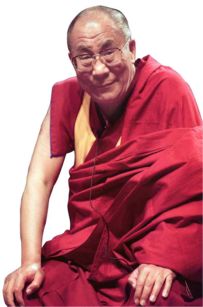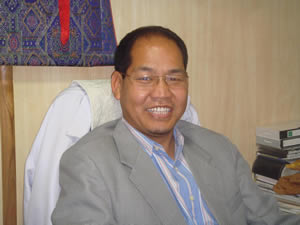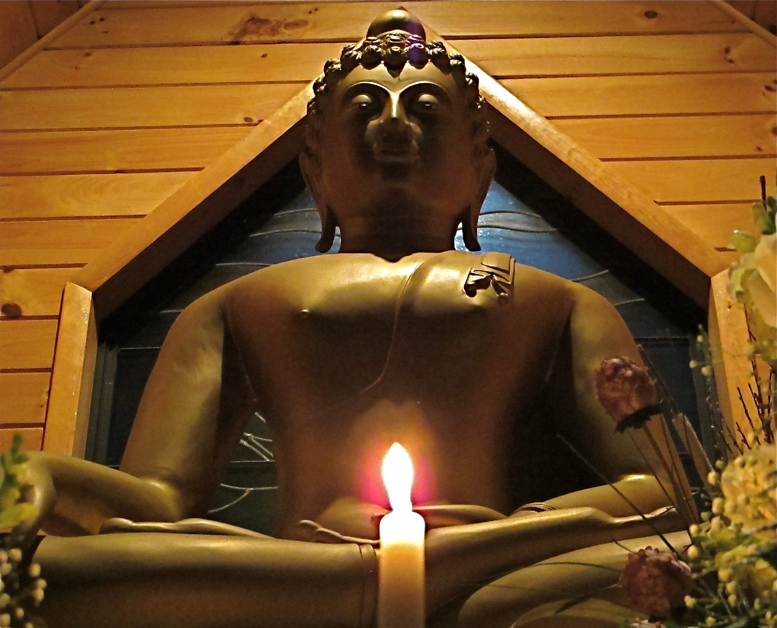
Bhavana Society Temple Buddha | May 2010 | High View, W.Va. |
Thad Settle found this article from a May 2010 edition of Tricycle stimulating and thought-provoking.
 Faith in Awakening
Faith in Awakening
Are faith and empiricism compatible? For Thanissaro Bhikkhu, they are inseparable components of an authentic Buddhist practice.
By Thanissaro Bhikkhu
THE BUDDHA NEVER PLACED unconditional demands on anyone’s faith. For people from a culture where the dominant religions do make such demands, this is one of Buddhism’s most attractive features. It’s especially appealing to those who—in reaction to the demands of organized religion—embrace the view of scientific empiricism that nothing deserves our trust unless it can be measured against physical data. In this light, the Buddha’s famous instructions to the Kalamas are often read as an invitation to believe, or not, whatever we like.
Don’t go by reports, by legends, by traditions, by scripture, by logical conjecture, by inference, by analogies, by agreement through pondering views, by probability, or by the thought, “This contemplative is our teacher.” When you know for yourselves that “these mental qualities are skillful; these mental qualities are blameless; these mental qualities are praised by the wise; these mental qualities, when adopted and carried out, lead to welfare and to happiness”—then you should enter and remain in them. (Anguttara Nikaya 3.65)
Pointing to this passage, many modern writers have gone so far as to say that faith has no place in the Buddhist tradition, that the proper Buddhist attitude is one of skepticism. But even though the Buddha recommends tolerance and a healthy skepticism toward matters of faith, he also notes a conditional imperative: if you sincerely want to put an end to suffering (that’s the condition) you should take certain things on faith, as working hypotheses, and then test them by following his path of practice. The advice to the Kalamas, in fact, contains the crucial caveat that you must take into account what wise people value.
This caveat gives balance to the Buddha’s advice: just as you shouldn’t give unreserved trust to outside authority, you can’t give unreserved trust to your own logic and feelings if they go against experience and the genuine wisdom of others. As other early discourses make clear, wise people can be recognized by their words and behavior as measured against standards set by the Buddha and his awakened disciples. The proper attitude toward those who meet these standards is faith:
For a disciple who has conviction in the Teacher’s message and lives to penetrate it, what accords with the Dhamma is this: “The Blessed One is the Teacher, I am a disciple. He is the one who knows, not I.” (Majjhima Nikaya 70)
Repeatedly the Buddha stated that faith in a teacher is what leads you to learn from that teacher. Faith in the Buddha’s own awakening is a requisite strength for anyone else who wants to attain awakening. As it fosters persistence, mindfulness, concentration, and discernment, this faith can take you all the way to the deathless … | Read On











